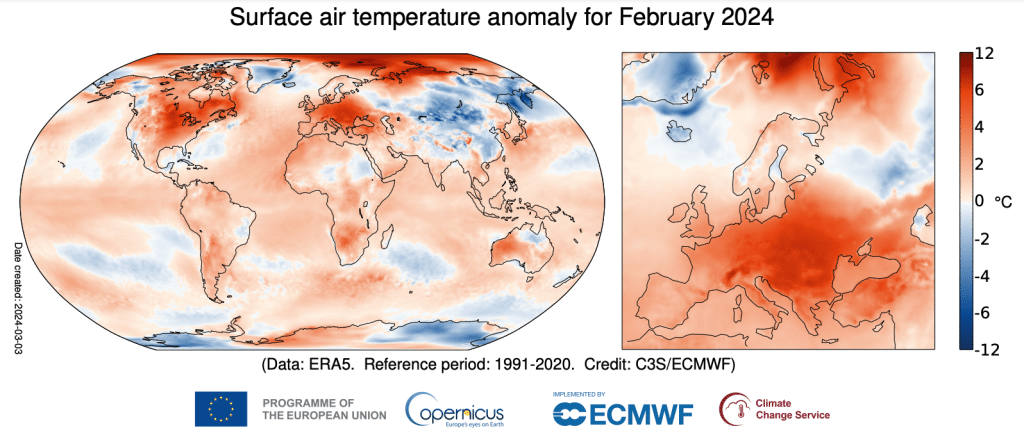Coordinated and urgent action is needed at all governance levels to prepare and adapt to a rapidly changing climate.
—
The European Union has notoriously been at the forefront of the global fight against climate change, making significant progress in understanding, preparing for, and adapting to a multitude of imminent and already unfolding climate risks. Nevertheless, its member countries are still highly unprepared for the worst consequences of a rapidly changing climate and only decisive action and rapid policy implementation at national and international level will help avoid a society-wide catastrophe by the end of the century.
“This should be the final wake-up call,” said Leena Ylä-Mononen, executive director of the European Environment Agency (EEA), which painted this grim picture in its first climate risk assessment. Published Monday, the analysis evaluates the severity of 36 climate risks threatening the continent and identifies priorities for EU-wide policy action. It predicts that without decisive action, hundreds of thousands of people could die from heatwaves and yearly economic losses from coastal floods alone could exceed €1 trillion (US$1.093 trillion).
According to the World Meteorological Organization (WMO), Europe is the world’s fastest-warming continent, having warmed at a rate that is twice as much as any other continent in the world since the 1980s. In 2023, a year that broke records around the world, temperatures in Europe were above average for 11 months. And the trend is continuing. Last month, temperatures in Europe stood at 3.30C above the 1991-2020 average for that month, the highest anomaly in the world.

Rapidly rising temperatures have brought about a cascade of extreme weather events, including extreme heat, altered precipitation patterns, unprecedented snow shortages, prolonged droughts, and devastating floods and wildfires.
In 2022, nearly half of Europe was under severe drought conditions, the worst in at least 500 years. The extreme situation had severe repercussions on the energy sector, with water shortages impacting some regions’ ability to power hydroelectric plants or cool down nuclear reactors, and international trade, as historic low water levels prevented ships from transiting rivers. Exceptionally warm and dry conditions also fuelled “a wildfire season sensibly above the average,” with some countries including Spain and Portugal experiencing particularly acute forest fires.
As this example shows, most of these extreme events have already reached critical levels at which they risk exacerbating existing risks and crises. Repercussions can be widespread and affect the entire society, compromising food and water resources and energy security, bringing about financial instability, and affecting the health of millions of people, especially vulnerable groups such as the elderly and outdoor workers.
For this reason, the report also stresses the importance of ensuring a just transition that does not leave the most vulnerable groups of society behind. This, the EEA says, requires making justice, fairness, and inclusiveness the core of all adaptation policies, something that just a few European countries have so far started doing.
“Our new analysis shows that Europe faces urgent climate risks that are growing faster than our societal preparedness,” said Ylä-Mononen, adding that only rapid emission cuts and strong adaptation policies and actions could ensure the resilience of European societies. And in terms of emission reduction, the 27-nation bloc has made significant progress.
EU-wide energy reforms following Russia’s invasion of Ukraine in 2022 have led to a rapid expansion of clean energy across most of its member states, ultimately resulting in an 8% drop in carbon dioxide emissions last year, the second-steepest drop after 2020, a year heavily influenced by Covid-19 lockdowns and restrictions.
But for the EEA, the problem lies in the long lead times of Europe’s climate policies and the fact that they are primarily made for the long-term. Instead, climate policy must “prevent rigid choices that are not fit for the future in a changing climate, such as in land-use planning and long-lived infrastructure,” while considering all future scenarios.
“We must prevent locking ourselves into maladaptive pathways and avoid potentially catastrophic risks,” the assessment read.
Featured image: Milos Bicanski/Climate Visuals Countdown
You might also like: New ‘Ambitious’ EU Legislation to Combat Environmental Crimes Introduces Tougher Penalties for Polluting Companies’ Representatives


















